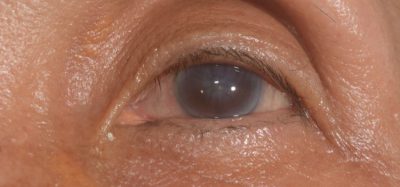Right now, computational researchers use a variety of bioinformatics software with different environments and parameters, which leads to variation in research protocols and difficulty reproducing results.
Because there is no standard of communication or common language used for computational biology, researchers cannot clearly communicate all the variables that impact their data analysis results, leading to the need for other researchers to expend additional time and effort to understand exactly what was done in a particular study.
“We want to make it as easy to get the exact parameters for biocomputation as it is to get a recipe for salmon,” Dr Raja Mazumder, Associate Professor of biochemistry and molecular medicine at the GW School of Medicine and Health Sciences. “The bioinformatics field is still evolving. With standards for BCOs, researchers will receive better information when comparing or building on existing research. It will allow all bioinformatics researchers to know the important components of the ‘recipe,’ so everyone is speaking the same language.”
The BioCompute Object Specification Document was published on the Open Science Framework site, a free, open-source commons for scientists.
“BioCompute objects represent an important development in community-driven harmonisation frameworks that meet the need for standardisation as a prerequisite for a deeper understanding of community-generated nucleic acid sequence information,” said Dr Vahan Simonyan, HIVE Team Principal Investigator in FDA’s Center for Biologics Evaluation and Research, Office of Biostatistics and Epidemiology. “This effort has the potential to advance modern biological and medical data analysis and help improve patient health outcomes.”
“BCOs have the potential to profoundly transform and optimise the dissemination and communication of next-generation sequencing among potential stakeholders, including scientific labs, clinical laboratories, and regulatory agencies,” said Gil Alterovitz, assistant professor at Harvard Medical School and the Computational Health Informatics Program, Boston Children’s Hospital.
The BCO framework was created with input from over 300 key stakeholders who attended a recent workshop hosted by GW in coordination with the FDA. The attendees included medical researchers, regulatory scientists, HTS or next-generation sequencing data platform developers, pharmaceutical scientists and bioinformaticians, big data experts, and more.
“We work with numerous research and development teams across the industry and standardising data analysis workflows is one of the biggest challenges our customers face,” said Dennis Dean, senior scientist at Seven Bridges. “Having a common standard that enables greater transparency and reproducibility is absolutely key when it comes to improving the effectiveness of biomedical research and seeking regulatory approval for new therapies.”










